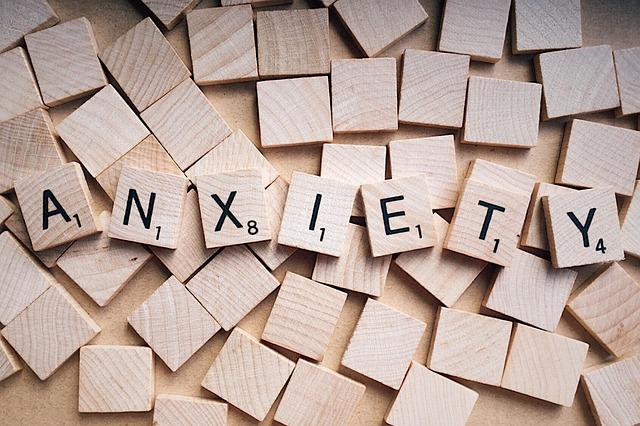Anxiety among parents is common, influenced by modern life demands and impacting mental health, and child-rearing abilities. Recognize signs like excessive worry and physical symptoms, as triggers vary from schedules to financial stress. Therapy for parenting skills includes CBT, mindfulness exercises, relaxation techniques, and trauma support. CBT targets negative thought patterns, empowering parents to manage specific anxieties and improve well-being through mindfulness meditation and stress reduction. Mindfulness and meditation help navigate chaos, cultivate inner peace, and prevent burnout by focusing on the present moment and cultivating calm. Journaling complements these practices for emotional regulation, stress reduction, and positive family dynamics. Therapy for parenting skills offers a safe space to learn healthy coping strategies, build resilience, and navigate challenges with ease.
Managing anxiety is a crucial aspect of effective parenting. This comprehensive guide delves into various techniques designed to help parents recognize and overcome anxiety triggers, fostering healthier and more resilient family dynamics. From understanding the signs and exploring cognitive behavioral therapy (CBT) to adopting mindfulness practices, we offer practical strategies for long-term anxiety management in parenting skills.
- Understanding Anxiety in Parenting: Recognizing the Signs and Triggers
- Cognitive Behavioral Therapy (CBT): A Powerful Tool for Managing Parental Anxiety
- Mindfulness and Meditation: Finding Calm Amidst the Chaos
- Building Resilient Parenting Skills: Coping Strategies for Long-Term Anxiety Management
Understanding Anxiety in Parenting: Recognizing the Signs and Triggers

Anxiety is a common challenge for many parents, and recognizing its signs and triggers is an essential first step in managing it effectively. Parenting already comes with its own set of stresses, from juggling work and family life to dealing with the ever-changing needs of children. When anxiety creeps in, it can manifest in various ways, affecting both parents’ mental health and their ability to nurture their kids. Some signs to look out for include excessive worry, restlessness, difficulty concentrating, and physical symptoms like a racing heart or insomnia. Triggers can be as simple as a busy schedule, financial worries, or even specific child-rearing practices that feel overwhelming.
Understanding these triggers is crucial in designing tailored strategies for anxiety management within parenting skills therapy. Mental health education programs focused on parenting often emphasize mood management techniques to help parents cope with stress and anxiety. These may include mindfulness exercises, relaxation strategies, and cognitive behavioral techniques to challenge negative thought patterns. Additionally, trauma support services can be beneficial for those who have experienced past traumas, as these can sometimes resurface and trigger anxiety in parental roles.
Cognitive Behavioral Therapy (CBT): A Powerful Tool for Managing Parental Anxiety

Cognitive Behavioral Therapy (CBT) is a powerful tool for parents seeking to manage their anxiety. This evidence-based approach focuses on identifying and changing negative thought patterns and behaviors, helping individuals develop more adaptive coping mechanisms. For parents, CBT can be particularly beneficial in enhancing therapy for parenting skills, addressing specific anxieties related to childrearing, and improving overall well-being.
By learning mindfulness meditation techniques and stress reduction methods through CBT, parents can gain a better understanding of their anxiety triggers and responses. This increased awareness allows them to navigate challenging situations with more composure, fostering healthier interactions with their children. Public awareness campaigns development around mental health has also contributed to normalizing these conversations, making it easier for parents to access support and seek help when needed.
Mindfulness and Meditation: Finding Calm Amidst the Chaos

In today’s fast-paced world, parents often find themselves caught in a whirlwind of responsibilities and stressors that can trigger anxiety. Mindfulness and meditation offer powerful tools to navigate this chaos and cultivate inner peace. These practices involve focusing on the present moment, observing thoughts and sensations without judgment, and cultivating a sense of calm. For parents seeking therapy for parenting skills, incorporating mindfulness into their daily routines can be transformative. It helps in enhancing self-awareness exercises, allowing them to better manage stress and prevent burnout, a critical aspect of burnout prevention strategies for healthcare providers as well.
Mental wellness journaling exercise guidance further complements these practices by providing a space to articulate feelings, track progress, and identify triggers. By regularly engaging in these activities, parents can develop a deeper understanding of their emotional responses and learn to regulate anxiety effectively. This not only benefits their mental wellness but also positively influences their interactions with children, fostering healthier family dynamics.
Building Resilient Parenting Skills: Coping Strategies for Long-Term Anxiety Management

Parenting can be a stressful journey, and managing anxiety effectively is essential for both parents’ well-being and their children’s development. Building resilient parenting skills involves adopting healthy coping strategies that promote emotional regulation and provide long-term anxiety management tools. Therapy for parenting skills offers a safe space to learn and practice these techniques, helping parents navigate challenging situations with greater ease.
One key aspect is incorporating self-care routines into daily life, which contributes to better mental health and reduces the risk of anxiety exacerbation. Emotional regulation strategies, such as mindfulness exercises or journaling, can empower parents to manage their own stress levels, fostering a calmer environment for their children. Additionally, seeking crisis intervention guidance when needed ensures that parents have access to support during intense moments, promoting healthier family dynamics and long-term resilience.
Anxiety management is an ongoing journey, especially for parents. By understanding and recognizing the signs and triggers of parental anxiety, individuals can effectively employ evidence-based therapies like Cognitive Behavioral Therapy (CBT) to gain control over their emotions. Incorporating mindfulness practices and building resilience further enhances coping abilities. With dedicated effort, parents can develop robust skills that support both personal well-being and effective parenting, ensuring a healthier, happier family environment. This comprehensive approach to therapy for parenting skills empowers individuals to navigate life’s challenges with increased confidence and composure.














